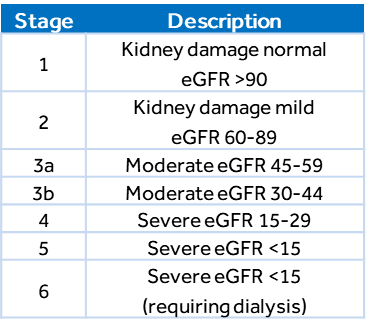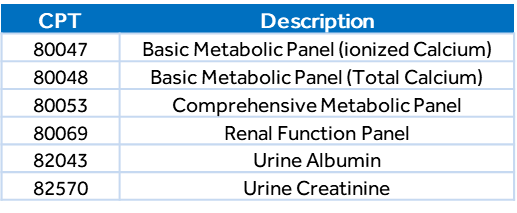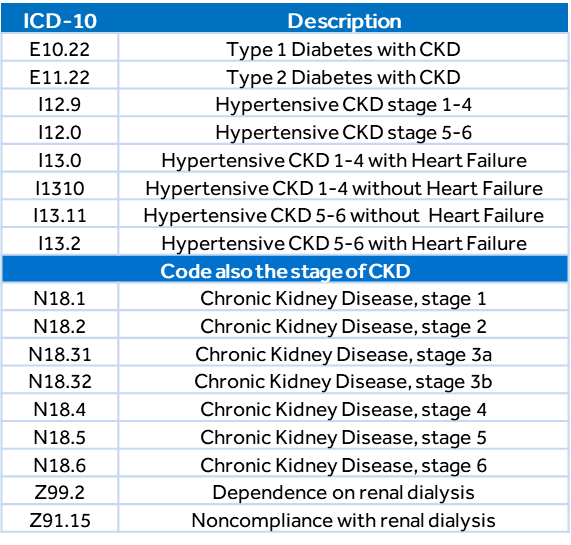
Chronic Kidney Disease
According to the CDC, Chronic Kidney Disease (CKD) is a condition in which the kidneys are damaged and cannot filter blood as well as they should. CKD has varying levels of severity, and it usually gets worse over time, though treatment has shown to slow progression.
Approximately 37 million U.S. adults are estimated to have CKD, and most are underdiagnosed. Around 40% of people with severely reduced kidney function who are not on dialysis are not aware of having CKD. In the U.S., diabetes and high blood pressure are the leading cause of kidney failure.
Complications of CKD can include anemia, weak bones, nerve damage, hyperparathyroidism, and high blood pressure. An eGFR below 60 for ≥ 3 months or an eGFR ≥ 60 with kidney damage indicates CKD.

The National Kidney Foundation (NKF) has developed new measures for kidney health evaluation for people with diabetes (KED). The intent is to improve rates of kidney health evaluation in patients with diabetes to identify and treat CKD in this high-risk population. Screening and/or monitoring consists of both an eGFR and a urine albumin and creatinine test.

Documentation & Coding
Common errors in documentation include lack of specificity for staging the CKD and not linking the condition to underlying etiologies, such as diabetes and hypertension.
ICD-10-CM guidelines state that CKD can be assumed “due to” both hypertension and diabetes, even in the absence of the provider linking them, unless the CKD is linked by a provider to another condition. The guidelines also state that the code for the stage of CKD is required.
Document Specificity
- Acute vs. Chronic
- Stage with recent eGFR value
- Avoid multiple stages
- Link to underlying etiology
- Specify complications
- Avoid Renal Insufficiency (N28.9)

Resources: CDC; CKD disparities; ICD-10-CM Official Guidelines; National Kidney Foundation
About the Author


